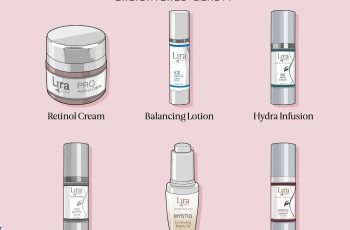
**Flax Seed Oil in Skin Care Products: Benefits, Uses, and Considerations**
Flax seeds, often referred to as linseeds, are tiny yet mighty when it comes to their benefits for skin care. The oil extracted from these small seeds has been utilized for centuries, praised for its wide range of health benefits, including promoting glowing skin. But what does science say about flax seed oil, and is it truly as effective as its reputation suggests? Let’s delve into the numerous skin care benefits of flax seed oil, how it works, and who should incorporate it into their skin care routine.
### What Are Flax Seeds?
Flax seeds are the tiny seeds of the flax plant, a flowering plant known for its rich historical significance in the realms of health, textiles, and skin care. Originating from the blue-flowered flax plant, these seeds have been cultivated for thousands of years. Ancient Egyptians valued flax seed oil for its health benefits, and Greek physician Hippocrates even recommended it for its anti-inflammatory properties. Today, flax seeds remain a popular natural ingredient in skin care due to their remarkable potential to address various skin concerns.
Flax seeds themselves are small, similar in size to sesame seeds, with a tough outer shell and soft golden inner seeds. These seeds can be pressed to extract flax seed oil, a substance rich in essential nutrients that provide numerous benefits for the skin. Modern research has supported the historical use of flax oil, with studies demonstrating its ability to enhance skin hydration, reduce inflammation, and promote healthier skin overall.
### What Is Flax Seed Oil Made Of?
Flax seed oil is a rich source of several key nutrients and active compounds that contribute to its effectiveness in skin care. Some of the most notable components of flax seed oil include:
– **Omega-3 Fatty Acids (Alpha-Linolenic Acid, ALA):** Flax seed oil is an excellent source of omega-3 fatty acids, particularly alpha-linolenic acid (ALA). This compound is known for its strong anti-inflammatory properties, helping to calm redness and irritation in the skin.
– **Linoleic Acid:** Linoleic acid is another essential fatty acid found in flax seed oil. It helps maintain the skin’s moisture barrier and contributes to the skin’s ability to retain hydration, making it especially beneficial for dry or sensitive skin.
– **Oleic Acid:** Oleic acid is a monounsaturated fatty acid that helps with ingredient penetration into the skin. It aids in enhancing the absorption of other beneficial ingredients, making flax seed oil a useful addition to products that contain active compounds like retinoids or vitamin C.
– **Saturated Fatty Acids:** While present in smaller quantities, palmitic and stearic fatty acids give flax seed oil its occlusive, thick texture. These fatty acids help to lock moisture in the skin, preventing dehydration and promoting a smooth, hydrated complexion.
– **Lignans:** Flax seeds are one of the richest plant sources of lignans, antioxidant polyphenolic compounds that have been linked to improved skin health. Lignans are believed to promote wound healing, stimulate collagen production, and offer additional anti-aging benefits.
– **Vitamin E:** A potent antioxidant, vitamin E plays a crucial role in protecting the skin from free radical damage caused by UV exposure and environmental stressors. It helps preserve the skin’s natural moisture balance and contributes to a youthful, radiant appearance.
This diverse array of nutrients makes flax seed oil a powerhouse ingredient in skin care formulations, offering a variety of benefits that address a wide range of skin concerns.
### The Benefits of Flax Seed Oil in Skin Care
Flax seed oil’s unique chemical profile provides several skin care benefits. Here are some of the key advantages it offers:
#### 1. **Increased Skin Hydration**
One of the primary benefits of flax seed oil is its ability to enhance skin hydration. The omega-3 fatty acids and linoleic acid in flax oil help to lock moisture into the skin, preventing water loss and promoting a dewy, plump appearance. This is particularly beneficial for individuals with dry or dehydrated skin, as flax oil helps restore moisture and softness.
By forming a protective barrier on the skin’s surface, flax seed oil ensures that hydration is retained, keeping the skin looking fresh and radiant throughout the day.
#### 2. **Reduction of Inflammation**
The omega-3 fatty acids in flax seed oil are known for their powerful anti-inflammatory properties. They help reduce inflammation in the skin, making flax seed oil an excellent choice for people with inflammatory skin conditions such as acne, rosacea, and psoriasis. By soothing irritated skin, flax seed oil promotes a calmer, more balanced complexion. Its ability to alleviate redness and inflammation is one of the reasons it is frequently recommended for sensitive skin types.
#### 3. **Protection from Sun Damage**
Flax seed oil is rich in antioxidants, including lignans and vitamin E, which help protect the skin from oxidative stress caused by UV exposure. UV radiation generates free radicals in the skin, which can lead to premature aging, wrinkles, fine lines, and even skin cancer. By neutralizing these free radicals, flax seed oil helps prevent damage from sun exposure and can even improve the skin’s resilience against environmental stressors. However, while flax seed oil offers some protection, it should not be used as a substitute for sunscreen.
#### 4. **Improved Skin Firmness and Elasticity**
Alpha-linolenic acid (ALA) in flax seed oil has been shown to stimulate collagen production in the skin. Collagen is a crucial protein that provides the skin with structure, firmness, and elasticity. As we age, collagen production naturally declines, leading to wrinkles, sagging skin, and loss of firmness. Regular use of flax seed oil can help counteract these effects by promoting collagen synthesis, leading to firmer, more elastic skin. This makes flax seed oil a valuable ingredient in anti-aging products.
#### 5. **Healing of Scars and Wounds**
The combination of fatty acids, antioxidants, and lignans in flax seed oil promotes healing and tissue regeneration. This makes flax oil a useful ingredient in products designed to improve the appearance of scars, wounds, or abrasions. It can help accelerate the healing process by reducing inflammation and providing essential nutrients that support skin repair. For those with acne scars or minor cuts and bruises, flax seed oil can help speed up recovery and improve skin texture.
#### 6. **Smoother, Softer Skin**
Flax seed oil is known for its ability to improve the overall texture of the skin. By nourishing the skin with essential fatty acids and vitamins, flax oil helps to maintain a smooth, supple texture. Regular use can result in soft, glowing skin that feels hydrated and balanced. Linoleic acid in flax oil helps to prevent moisture loss, promoting a hydrated, dewy appearance that reflects light and gives the skin a natural glow.
### Side Effects and Considerations
Flax seed oil is generally safe for topical use, with a low risk of adverse reactions. However, there are some considerations to keep in mind:
– **Comedogenic Potential:** While flax seed oil is non-comedogenic for most skin types, it may cause breakouts in individuals with very acne-prone skin. This is due to its small concentration of palmitic acid, which is mildly comedogenic. If you have acne-prone skin, it is recommended to patch test flax seed oil before applying it to the face.
– **Rancidity:** Flax seed oil is prone to oxidation and can become rancid over time. To prevent this, store flax seed oil in a cool, dark place and use it within a few months after opening. Always check for any changes in odor or texture, as rancid oil can irritate the skin.
– **Sensitive Skin:** While flax seed oil is generally well-tolerated, it may cause irritation in individuals with very sensitive skin or open wounds. It is best to avoid applying flax seed oil directly to injured or compromised skin, as it may cause discomfort or aggravate sensitive areas.
– **Oral Supplements:** Although flax seed oil is beneficial when applied topically, consuming it orally may cause gastrointestinal issues like diarrhea or stomach upset in some individuals. Always consult with a healthcare professional before taking flax seed oil supplements, especially if you have any underlying health conditions.
### Flax Seed Oil for Specific Skin Concerns
#### 1. **Flax Seed Oil for Dry Skin**
Flax seed oil is particularly beneficial for dry skin, as its rich concentration of moisturizing fatty acids helps replenish lost moisture. If you have chronic dry skin or conditions like eczema, flax seed oil can provide deep hydration and soothe inflamed, red patches. It is a perfect addition to your skin care routine during the colder months when the skin tends to lose moisture more easily.
#### 2. **Flax Seed Oil for Acne**
While flax seed oil is not typically comedogenic, individuals with extremely acne-prone skin should be cautious when using it. The oil contains small amounts of palmitic acid, which could potentially clog pores in certain individuals. If you don’t have a tendency toward breakouts, flax seed oil can be a great addition to retinoid-based treatments to enhance ingredient penetration, thanks to its oleic acid content.
#### 3. **Flax Seed Oil for Hyperpigmentation**
Flax seed oil alone is unlikely to eliminate hyperpigmentation or dark spots. However, it can be beneficial when incorporated into a broader skin care routine that includes exfoliating and brightening ingredients like vitamin C, niacinamide, or alpha hydroxy acids (AHAs). Flax seed oil’s soothing properties can help balance and calm the skin, improving its overall texture as you work on lightening dark spots.
#### 4. **Flax Seed Oil for Aging Skin**
Flax seed oil’s antioxidant and anti-inflammatory properties make it an excellent choice for aging skin. It helps fight free radicals and prevent collagen breakdown, which can lead to wrinkles and sagging. Regular use of flax seed oil can slow down the visible signs of aging, keeping the skin looking youthful, hydrated, and firm.
### Conclusion
Flax seed oil is a versatile and beneficial ingredient in skin care products. Its rich combination of omega-3 fatty acids, antioxidants, and essential vitamins makes it an excellent option for improving skin hydration, reducing inflammation, protecting against sun damage, and promoting collagen production. Whether you’re dealing with dry, sensitive skin, acne, or signs of aging, flax seed oil can be a valuable addition to your skin care routine.
Before incorporating flax seed oil into your regimen, consider taking the Baumann Skin Type quiz to determine if it’s suitable for your specific skin type. With its impressive list of benefits and minimal risk of side effects, flax seed oil is a safe and effective choice for most people looking to improve their skin’s health and appearance.


